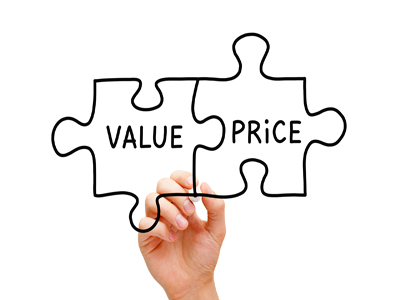There are a lot of misconceptions about what enhances the value of a business. The following factors in this Discussion are aspects of a business that really drives its value and pricing. A business owner asked me this question today so I wanted to get others view points as well in this Discussion.

Comments & Feedback From Pro Intermediaries & Pro Advisors On BizBen:



McGovern Escrow Services, Inc., is a leading independent escrow company. We are a trusted partner with our clients, assisting them through the tangled bulk sale & liquor license transfer process. We provide attentive, quality & innovative customer service. Phone Elizabeth McGovern at 415-735-3645.
ServingSan Francisco Bay Area, North Bay, Central Valley
The Veld Group provides a refreshing approach to Business Brokerage, Mergers & Acquisitions and Business Consulting and Valuations. From Your Street to Wall Street, we cater to Main Street Businesses as well as more complex Strategic Firms and Start-Ups.
ServingSouthern California
If your business involves alcoholic beverage sales, we can help. Obtaining a liquor license transfer or selling a business with a license in California does not have to be a frustrating and overwhelming process. We have procured thousands of licenses for our clients.
ServingAll Of California
Laundry consulting, due diligence, buyer representation: We preview laundries for you and evaluate them. 28 years laundry industry experience: buying, selling, valuing, retooling, analyzing, consulting services for laundry buyers and entrepreneurs in California. Contact us today about our services.
ServingAll California
Cheryl's a restaurant business broker, over 25 years in the bar and restaurant industry coupled with a J.D. Cheryl works tirelessly to create successful strategies and effective negotiations for those who wish to purchase a new or sell an existing bar, restaurant, cafe, or night club. 415-309-2722
ServingCity Of San Francisco

Laundromats and coin operated Laundromats are popular choices among business buyers as they often can be successfully run as an absentee run business. You need to be strategic about when you sell your Laundromat so you don't get taken to the cleaners by a buyer and so that you maximize your profits.

Buying a professional service business, like a dental practice, is one of the most profitable ventures you can enter into if you are considering becoming a small business owner. In this blog, Peter Siegel, MBA discusses six things you need to know about buying a successful dental practice or office.

Chuck Post a laundry consultant, specialty broker, buyer representative & due diligence advisor starts this discussion on why it's important to have an exit strategy in mind while buying a laundromat! He & others explain why this concept is so important for buyers especially in the laundry business.

Buying a liquor store can present some major challenges to business buyers - a recent client on the BizBen ProBuy Program relates to Peter Siegel, MBA what the major challenges may be when searching for and buying a Californa liquor store business. I welcome other Advisors to weigh in on this topic.

Sometimes business brokers just can't win with their clients, because if an offer comes in too fast & too early then they must have lowballed the price & the seller is suspicious, and if not enough offers come in after putting the business on the market - they may look unproductive to their clients.
